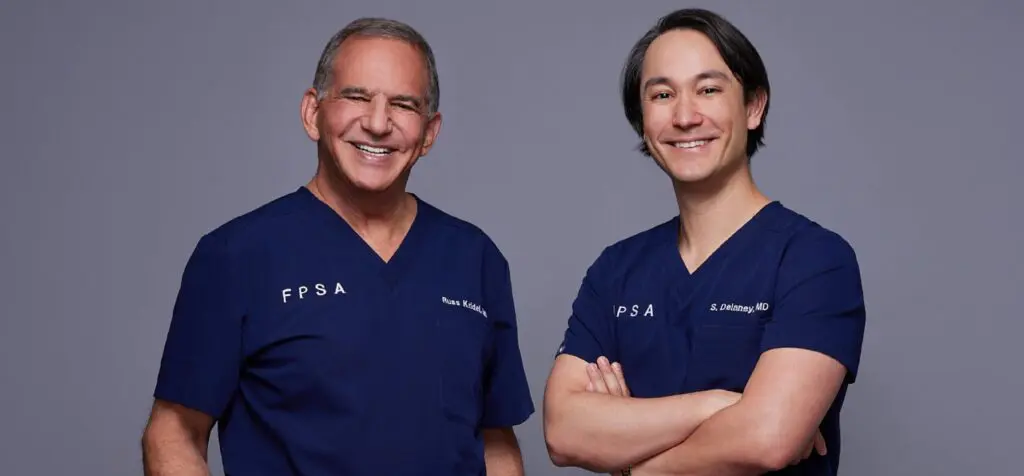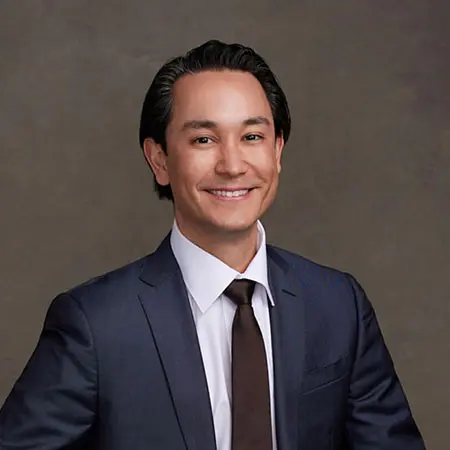August 05, 2024 | Board Certified, Rhinoplasty
4 minute read

When considering facial plastic and reconstructive surgery, you may come across the term “board certified.” This designation signifies a surgeon’s expertise, training, and commitment to excellence in their field. Understanding what it means to be board certified in facial plastic and reconstructive surgery can help you make informed decisions about your care.
The Path to Board Certification
Achieving board certification in facial plastic and reconstructive surgery is a rigorous process that demonstrates a surgeon’s dedication and expertise. Here’s an overview of the key steps involved:
1. Medical Education and Training:
– Medical School: The journey begins with completing a medical degree (MD or DO).
– Residency: After medical school, the surgeon must complete a residency in otolaryngology (head and neck surgery) or plastic surgery, which typically lasts 5-6 years. This training covers a wide range of surgical procedures, including those involving the face, head, and neck.
2. Specialized Fellowship:
– Many surgeons choose to undertake an additional fellowship specifically in facial plastic and reconstructive surgery. These fellowships, usually lasting 1-2 years, provide intensive, hands-on training in advanced techniques for cosmetic and reconstructive procedures on the face.
3. Board Certification Exams:
– After completing the necessary training, surgeons must pass comprehensive written and oral exams administered by the certifying board, the American Board of Facial Plastic and Reconstructive Surgery (ABFPRS).
The Significance of Board Certification
Board certification is more than just a title; it represents a surgeon’s commitment to maintaining high standards of care and staying updated with the latest advancements in the field. Here’s why board certification matters:
1. Verified Expertise:
– Board-certified surgeons have proven their knowledge and skills through rigorous testing and evaluation. This assurance means they have met the high standards set by their peers and the certifying board.
2. Commitment to Continuing Education:
– To maintain certification, surgeons must engage in ongoing education and professional development. This commitment ensures they remain current with evolving techniques, technologies, and best practices.
3. Ethical Standards:
– Board-certified surgeons adhere to a strict code of ethics, prioritizing patient safety, informed consent, and professional integrity. This ethical commitment helps build trust between the surgeon and their patients.
4. Quality Assurance:
– Certification involves peer reviews and continuous assessment, which help ensure that the surgeon’s practice meets high standards of quality and patient care.
Choosing a Board-Certified Surgeon
When selecting a facial plastic surgeon, consider the following tips to ensure you are choosing a qualified professional:
1. Verify Certification:
– Check if the surgeon is certified by recognized boards such as the ABFPRS. You can usually verify this information on the board’s website.
2. Review Their Credentials and Experience:
– Look into the surgeon’s educational background, training, and experience with the specific procedures you are considering. A well-experienced surgeon is more likely to achieve optimal results.
3. Consultation:
– Schedule a consultation to discuss your goals, ask questions, and evaluate the surgeon’s approach and communication style. A good surgeon will listen to your concerns, explain the procedure in detail, and set realistic expectations.
4. Patient Testimonials and Before-and-After Photos:
– Review testimonials from previous patients and examine before-and-after photos of the surgeon’s work. This can provide insight into the surgeon’s skill and patient satisfaction.
Conclusion
Board certification in facial plastic surgery is a hallmark of excellence, signifying a surgeon’s expertise, dedication, and commitment to patient care. By choosing a board-certified surgeon, you can have confidence in their ability to deliver safe, natural, and aesthetically pleasing results. Remember to do your research, verify credentials, and select a surgeon who aligns with your goals and expectations for a positive surgical experience.




